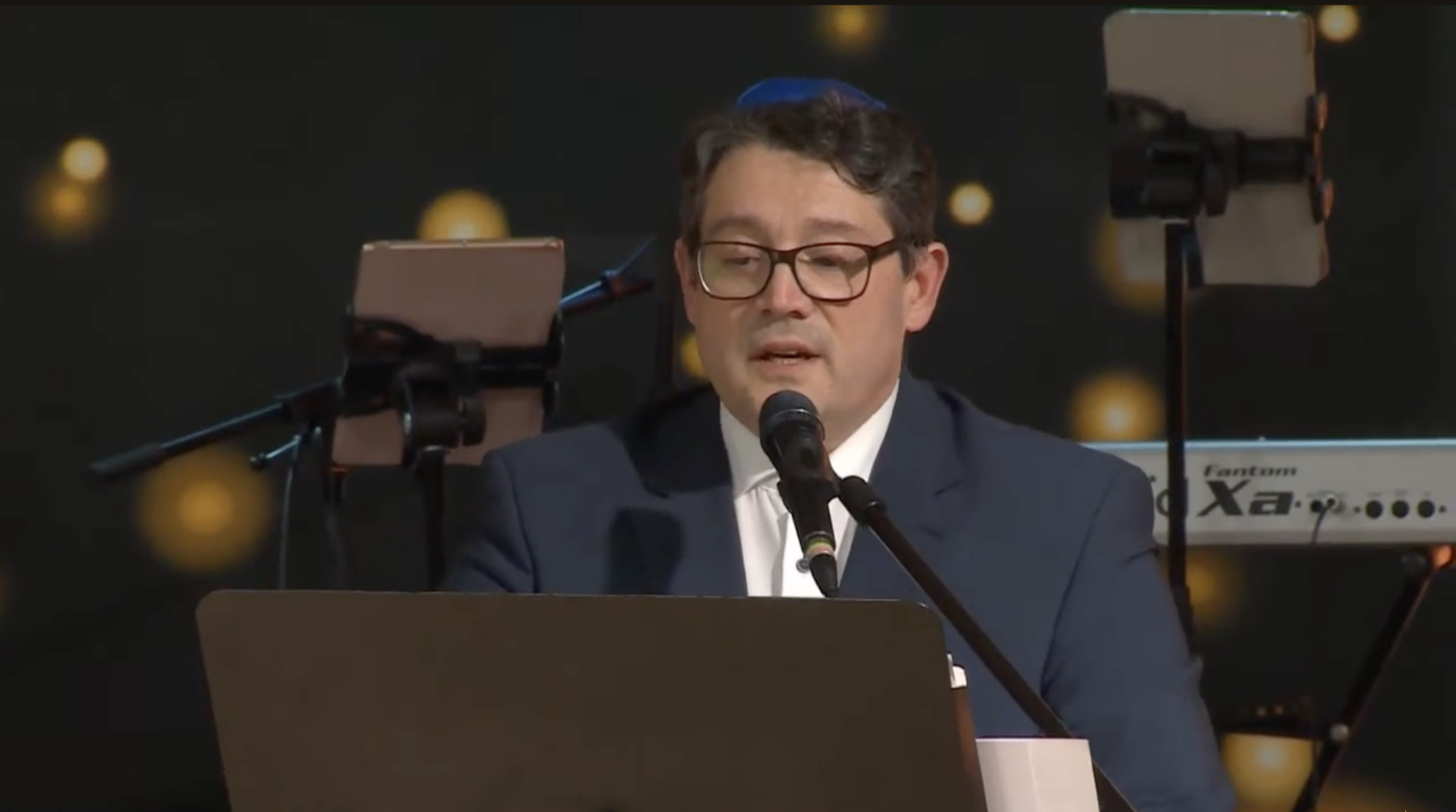Prominent German cantor and opera singer is killed in what police say was a family dispute
A German news site said a son is being held after the death of Nikola David, 55, who had been cantor for Munich’s liberal Congregation Beth Shalom since 2014

Cantor Nikola David appears in a 2018 performance. (March of Life on YouTube)
(JTA) — BERLIN — Munich’s liberal Jewish congregation is calling for donations to help the family of its cantor after he was killed earlier this month.
Nikola David’s adult son is being held on suspicion of manslaughter since the Aug. 2 killing, which rocked Munich’s Jewish community.
Nikola David, 55, was a former opera singer who had been cantor at Congregation Beth Shalom since 2014. The synagogue’s rabbi, Tom Kučera, officiated his Aug. 7 funeral, and three prominent German cantors — Amnon Seelig, Assaf Levitin and Isidoro Abramowicz — also participated.
Police said neighbors witnessed a physical altercation between father and son on the morning of Aug. 2 and called authorities, according to a report in the Bavarian news site Merkur. The site reported that police arrested the older son at the scene and brought Nikola David to a local hospital, where he died. The jailed son reportedly had minor injuries to his hand.
Details about the reported altercation have not been made public, although Merkur reported that David had been stabbed. Police and community have also withheld the names of family members, including the son who has been arrested and David’s wife and younger son, who were reportedly not present at the time.
Charlotte Knobloch, president of the Jewish Community of Munich and Upper Bavaria, tweeted that she was “absolutely shocked” to learn about David’s killing. “His death marks a painful loss for the Jewish community in Munich,” she said.
David was born in Bela Crkva in what is now Serbia but, growing up in communist Yugoslavia, had little exposure to his Jewish identity. At 20, he moved to Germany where he studied music education and classical vocal training and began working as an opera singer.
David’s path changed in 1993 when he performed at a ceremony marking the 48th anniversary of the liberation of Auschwitz, he recalled during an extensive interview and performance in 2018. There, the chief rabbi of the former Yugoslavia encouraged him to get involved in synagogue music. He balanced his opera career and ritual music until enrolling at the Abraham Geiger College in Potsdam, where he was ordained as a cantor in 2013.
“I had no background and music was that which kept me,” David said in the 2018 interview. Citing the Hasidic rabbi Nachman of Breslov, he said, “The Torah is the language of the heart. The words of the Torah are the words of the heart, and singing is the language of the soul. And that’s what kept me — and now I am what I am.”
David shared that his favorite Jewish prayer was Hashkivenu, which envisions God as a shelter of peace. He said it had been one of the first prayers he learned while becoming acquainted with his Judaism. “It’s always an evening prayer which you should pray before you go to sleep because one doesn’t know if one is going to wake up,” he said. “We should thank God that we can wake up every morning.”
In a plea for financial support for the family, Congregation Beth Shalom described its late cantor as “a wonderful person whose music and warmth enriched the community. His unexpected death leaves a painful gap for the community, the city, but of course especially for his family.”
The congregation already is supporting Nikola’s widow and his younger son, the announcement said in part.
“We will miss him terribly,” synagogue board member Eric Smutny told Merkur. “We cannot replace him.”













